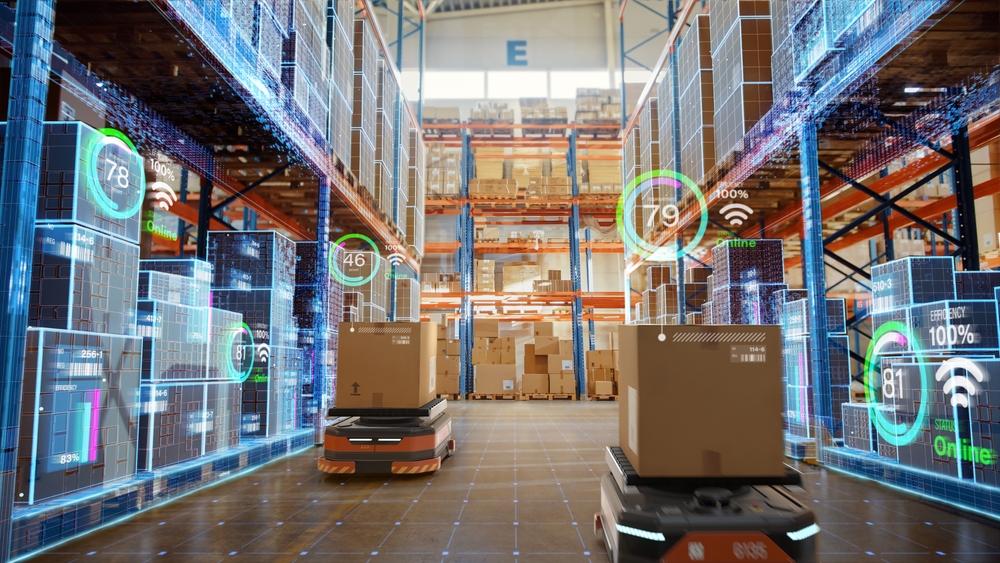The Role of AI in Revolutionizing Logistics Management
The logistics industry has seen a dramatic transformation in recent years, with Artificial Intelligence (AI) at the heart of this change. From predictive analytics and real-time tracking to automation and enhanced decision-making, AI is driving improvements that streamline logistics processes and create smarter supply chains.
For businesses looking to gain a competitive edge, understanding the role of AI in logistics management is crucial.
This blog will delve into how AI is revolutionizing logistics and explore its applications, benefits, and the future it’s shaping.
Understanding AI in Logistics
AI encompasses a range of technologies like machine learning, robotics, natural language processing (NLP), and computer vision that enable systems to learn, reason, and make decisions. In logistics, these capabilities translate to real-time data analysis, process automation, and smarter planning, providing unprecedented efficiency and flexibility.
The logistics and supply chain industry faces complexities like fluctuating demand, intricate routes, and high customer expectations. AI helps businesses overcome these hurdles by predicting demand trends, optimizing routes, managing warehouse operations, and providing visibility throughout the supply chain.
How AI is Transforming Logistics Management
1. AI-Powered Predictive Analytics for Demand Forecasting
Accurate demand forecasting is vital for logistics operations to ensure stock availability, avoid excess inventory, and meet customer expectations. AI allows companies to analyze historical data, customer behaviour, market trends, and external factors (like seasonality or promotions) to make accurate demand forecasts.
Dynamic Planning and Inventory Management
AI’s ability to analyze large datasets means inventory levels can be adjusted in real-time to match demand. For example, AI systems can notify warehouse managers when certain products are running low or predict a surge in demand, enabling proactive replenishment.
Reduced Inventory Costs and Improved Customer Satisfaction
By leveraging AI for predictive analytics, businesses can reduce inventory holding costs, avoid stockouts, and improve overall customer satisfaction. This streamlined approach minimizes waste and enhances efficiency in warehouse management.
2. Route Optimization and Real-Time Tracking
One of AI’s most impactful applications in logistics is route optimization, which enables companies to identify the most efficient transportation routes for timely deliveries. AI systems analyze traffic patterns, weather conditions, and other variables to find optimal delivery routes and reduce transportation time.
Real-Time Shipment Tracking
AI facilitates real-time tracking of shipments, allowing companies to offer greater transparency on their deliveries. With GPS-enabled tracking and AI’s predictive capabilities, businesses can provide accurate ETAs (Estimated Time of Arrival) and swiftly adapt to any disruptions.
Fuel Cost Savings and Reduced Environmental Impact
AI-driven route optimization not only improves delivery speed but also reduces fuel consumption and vehicle wear and tear. By optimizing routes, businesses can lower costs, reduce environmental impact, and increase the overall efficiency of their logistics operations.
3. Warehouse Automation and Smart Fulfillment
AI is revolutionizing warehousing by automating manual tasks and enabling smarter storage and fulfillment processes. Automated warehouses use AI-powered robots for picking and packing, drones for inventory checks, and intelligent systems for sorting and organizing stock.
Automated Picking and Packing
In traditional warehouses, manual picking and packing are time-consuming and prone to errors. AI-powered robotics can automate these tasks, boosting speed and accuracy. Collaborative robots, known as “cobots,” work alongside human workers to enhance productivity and reduce physical strain.
Dynamic Storage Systems
AI uses machine learning to analyze product demand, shelf life, and other attributes to dynamically allocate storage space. Frequently ordered items are placed in easily accessible locations, while less popular items are stored in deeper shelves. This system increases efficiency in order picking and decreases warehouse congestion.
4. AI for Predictive Maintenance of Fleet and Equipment
Logistics operations rely heavily on fleets of vehicles and warehouse machinery. Unexpected equipment breakdowns or vehicle failures can disrupt the entire supply chain, causing delays and increased costs. AI enables predictive maintenance, allowing businesses to identify potential issues before they escalate.
Monitoring Equipment and Fleet Health
AI systems can analyze data from sensors on vehicles and equipment to detect signs of wear and tear. This includes monitoring tire pressure, engine performance, and battery health in vehicles, or identifying faults in conveyor belts and robotics in warehouses.
Proactive Repairs and Reduced Downtime
By predicting potential breakdowns and scheduling preventive maintenance, businesses can reduce costly downtimes, extend the lifespan of equipment, and enhance the reliability of their logistics operations.
5. Enhanced Customer Experience through AI-Driven Insights
The modern customer expects transparency, speed, and reliability in their logistics experience. AI plays a pivotal role in meeting these expectations by offering insights that help tailor the customer experience and meet demands efficiently.
Customer Service with Chatbots and Virtual Assistants
AI-powered chatbots can assist customers with tracking their shipments, resolving inquiries, and providing real-time updates, all without human intervention. These virtual assistants are available 24/7, improving customer experience while reducing pressure on customer service teams.
Personalized Offers and Recommendations
By analyzing customer purchasing habits, preferences, and order history, AI can enable companies to personalize marketing offers, delivery options, and service packages to match individual customer needs.
6. Risk Management and Supply Chain Resilience
Logistics operations face a multitude of risks, from supply chain disruptions and weather-related delays to inventory shortages and changing regulations. AI helps companies identify and manage these risks proactively.
Predictive Risk Analysis
AI uses data analytics to identify potential risks within the supply chain, such as supplier delays, geopolitical events, or changes in demand patterns. Predictive risk analysis helps businesses develop contingency plans to mitigate disruptions and maintain continuity.
Supply Chain Visibility and Decision-Making
Real-time visibility enabled by AI allows logistics managers to make informed decisions quickly. If a shipment is delayed, AI systems can provide alternative routes, communicate updates to customers, and ensure that operations remain on track.
The Benefits of AI for Company Supply Chains
Improved Operational Efficiency
AI reduces manual labour, streamlines processes, and provides real-time data for quick decision-making. Companies can manage more complex supply chains with fewer resources, resulting in faster deliveries and improved service quality.
Cost Savings and Higher Profit Margins
AI-driven insights and automation reduce costs related to labour, fuel consumption, inventory management, and warehousing. These savings directly improve profit margins for businesses while delivering cost benefits to customers as well.
Enhanced Scalability and Flexibility
AI provides the agility needed to respond to changes in demand, customer preferences, and market conditions. Scalability is achieved by automating processes, while flexibility allows companies to adapt their operations quickly to meet changing needs.
Superior Customer Satisfaction
AI improves transparency, reliability, and service quality across all aspects of the supply chain process, resulting in a better customer experience. From providing accurate delivery times to personalized service, AI helps companies exceed customer expectations.
Embracing AI: The Way Forward for Logistics Management
AI is no longer a futuristic concept; it is reshaping logistics management today. From predictive analytics to route optimization, automated warehousing to predictive maintenance, AI offers countless opportunities to enhance efficiency, reduce costs, and improve customer experiences. For businesses and their customers, AI presents a way to navigate the complexities of the modern supply chain, enabling smarter, faster, and more reliable operations.
PiVAL’s Expertise in AI-Driven Logistics
As a leader in logistics solutions, PiVAL is at the forefront of integrating AI technology to revolutionize supply chain management. Whether you’re looking to optimize your warehouse operations, streamline transportation, or enhance customer service, PiVAL offers cutting-edge solutions to take your logistics to the next level.
Ready to transform your logistics operations with AI? Contact PiVAL today to learn more about how we can help your business thrive.
Stay Up-To-Date
There's always something new from PiVAL



Leave a Reply